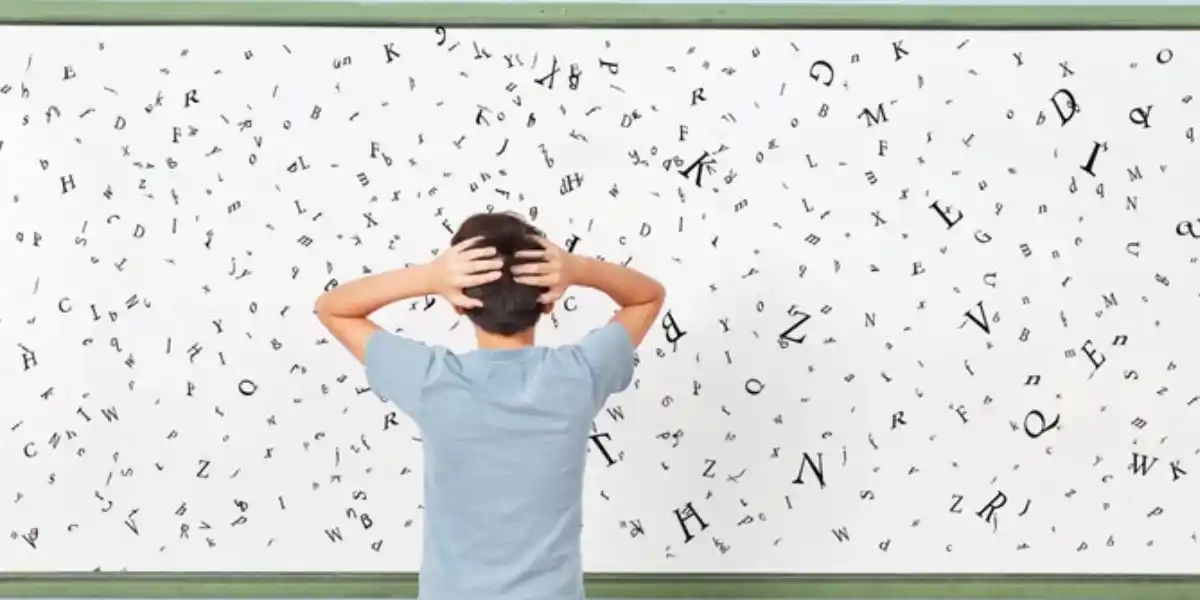What Is Dyslexia?
Dyslexia is a common learning disorder that affects reading, writing, and spelling. People with this disorder have difficulty identifying speech sounds and connecting them with letters and words – a process known as decoding.
It is not a disease. Individuals still can learn successfully; they simply learn differently. It’s best described as a language learning difference rather than a disability.
What Causes Dyslexia?
The main cause of Dyslexia is neurological and genetic. Research shows that it often runs in families and is linked to differences in how the brain processes language. The brain’s wiring affects phonological awareness — how we recognise and manipulate sounds in words.
Common Symptoms of Dyslexia
The signs of symptoms can vary from person to person and by age group. Many individuals develop coping strategies that can mask the underlying difficulties.
In Early Childhood
- Late talking or learning new words slowly
- Difficulty forming or pronouncing words correctly
- Reversing sounds or confusing similar words
- Trouble remembering letters, colours, or rhymes
In School-Age Children
- Reading well below the expected level
- Difficulty understanding what they hear
- Trouble finding the right words or sequencing ideas
- Struggles with spelling and sounding out words
- Avoidance of reading and writing tasks
In Teenagers and Adults
- Reading and writing slowly
- Ongoing spelling and pronunciation problems
- Difficulty summarising information
- Struggles learning foreign languages or solving maths problems
How Is Dyslexia Diagnosed?
There is no single test to diagnose Dyslexia. Instead, diagnosis is based on a combination of:
- Developmental, medical, and educational history
- Questionnaires and academic skill assessments
- Hearing, vision, and neurological tests
- Psychological or neuropsychological evaluations
Specialists such as neurologists, psychologists, and developmental paediatricians may also be involved in the diagnostic process.
Often, early signs are first noticed by a child’s teachers or parents.
Treatment and Support for Dyslexia
There is no cure for Dyslexia, but early diagnosis and targeted intervention can make a huge difference. Support focuses on improving reading, spelling, and comprehension skills through tailored strategies such as:
- Multisensory learning (using sight, touch, and sound)
- Listening to recorded lessons
- Reading aloud regularly
- Allowing extra processing time
- Reducing background noise and distractions
The goal of support is to build confidence and learning independence.
How Parents Can Help a Child with Dyslexia
Parents play a crucial role in supporting a child with Dyslexia:
- Encourage reading daily and make it enjoyable
- Be patient and provide emotional support
- Communicate regularly with teachers and support workers
- Ask open-ended questions to boost verbal expression
- Join right support groups and learn together
Early intervention helps children develop strong language and coping skills that last a lifetime.
Behavioural Challenges and Learning Differences
Children with Dyslexia may show behavioural or emotional difficulties due to frustration or misunderstanding. This can include:
- Difficulty understanding instructions
- Expressive language issues such as stuttering or word retrieval problems
- Trouble focusing or remembering tasks
- Emotional dysregulation when unable to express feelings
- Challenges with social cues, jokes, or idioms
These behaviours are not signs of laziness—they reflect how differently a Dyslexic brain processes information.
Common Myths About Dyslexia
- Dyslexia means low intelligence
- Only boys have Dyslexia
- Children will “catch up” with age
- People are lazy
- It’s mainly a behavioural problem
In reality, Dyslexia is a neurological difference, not a limitation. With proper support, individuals with it can thrive academically and personally.
If you’re searching for a NDIS provider Gold Coast that puts you first, we’d love to talk about how we can support your journey.
📞 Call 0493084705 or
📧 Email admin@mylotus.com.au
🌐 Or simply Contact Us Here













